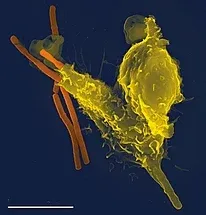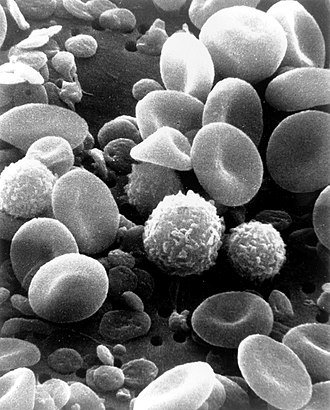The immune system is a network of biological processes that protects an organism against disease.
it detects and responds to a wide variety of pathogens from viruses to parasitic worms as well as cancer cells and objects such as wood splinters distinguishing them from the organism's own healthy tissue.

many species have two major subsystems of the immune system the innate immune system provides
a preconfigured response to broad groups of situations and stimuli. the adaptive immune system provides a tailored response to each stimulus by learning to recognize molecules it has previously encountered. both use molecules and cells to perform their functions. humans have sophisticated defense mechanisms including the ability to adapt to recognize pathogens more efficiently. adaptive immunity creates an immunological memory leading to an enhanced response to subsequent encounters with that same pathogen. this process of acquired immunity is the basis of vaccination
Innate immune cells
some leukocytes (white blood cells ) act like independent single-celled organisms and are the second arm of the innate immune system. the innate leukocytes (macrophages, neutrophils, and dendritic cells.) these cells identify and eliminate pathogens either by attacking larger pathogens through contact or by engulfing and then killing microorganisms. the other cells involved in the innate response include
innate lymphoid cells mast cells eosinophils basophils, and natural killer cells

phagocytosis is an important feature of cellular innate immunity performed by cells called phagocytes
that engulf pathogens or particles. phagocytes generally patrol the body searching for pathogens, but can be called to specific locations by cytokines...
Welcome to You Deserve https://steemit.com/trending/hive-183209
Downvoting a post can decrease pending rewards and make it less visible. Common reasons:
Submit
thank you lfgiaa
Downvoting a post can decrease pending rewards and make it less visible. Common reasons:
Submit